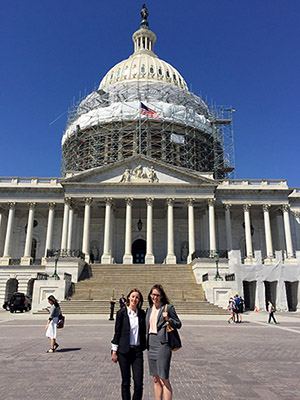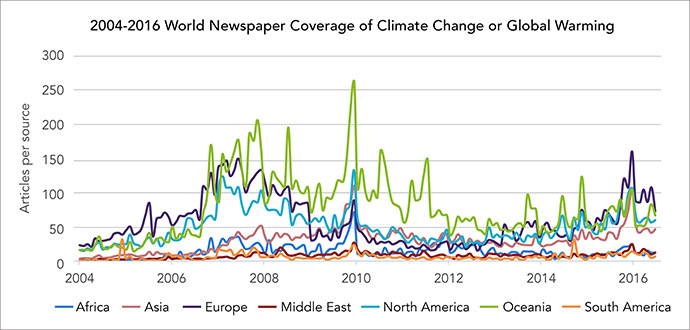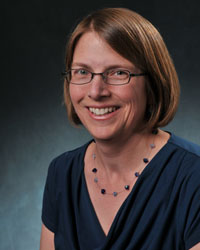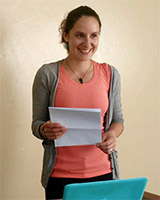Center News |
|
AAAS CASE Workshop Competition Reports |
|
For the third year CSTPR organized a campus-wide competition to select two students to attend the AAAS “Catalyzing Advocacy in Science and Engineering” Workshop in Washington, D.C. Winners of the 2016 AAAS CASE workshop competition reported on their experiences at the 2016 workshop: “Our time in D.C. was well-organized, thought-provoking, and for this future science policy-maker, a lot of fun. In three jam-packed days, we were introduced to the worlds of science for policy and policy for science, and what it means to be an effective leader in each. What do NASA and the FBI have in common? Their funding comes from the same congressional appropriations committee. What, then, is an appropriations bill? How does that differ from an allocation bill? Each session was thoughtfully designed to shape our understanding of a distinct piece of the policy puzzle. We scientists love to use long sentences with too many semi-colons and multi-syllabic words, but as the workshop taught us, politicians and their teams don’t have time to review every 30 page journal article on climate paleontology. What story can you tell about your work, and why it matters, they asked us, in three brief, yet informative bullet points? Policy is not just decisions made by our elected officials, however, as I learned from a Congressional Research Specialist at the Library Congress, who has worked on the Hill for over 40 years. She graced us with a short version of the day-long lecture she gives every freshmen class of Senators and Representatives on how Congress “really” works. She and all of the congressional staffers, university public relations lobbyists, and science policy officials with whom we met demonstrated how much policy-making depends on the thousands of behind the scenes actors working each day out of the limelight.” Sarah Welsh-Huggins (Civil, Environmental and Architectural Engineering), 2016 competition winner |
|
“On the Hill Visit Day we were able to get experience trying to “break through” the fray of information that members of Congress receive using messaging techniques we learned. Not only did we learn that Congressional staffers (in most cases our peers, ranging from 20-30 years old) are really the filters through which information gets to members of Congress, but we also learned the importance of storytelling in conveying effective messages. From our Hill guide Heather Bené (staff member at CU’s Office of Government Relations) we also learned the art of the long game. She had clearly developed positive relationships with staffers from Colorado’s Congressional offices and we could see how these positive relationships led to productive meetings and opportunities to chat with Legislative Directors and members of Congress themselves. The staffers also encouraged us as scientists to reach out directly as constituents; several of them commented that the scientific community is often less directly engaged with Congressional offices than other groups.” Angela E. Boag (Environmental Studies), 2016 competition winner For information about the competition and workshop, as well as testimonials from past competition winners, see the AAAS Student Competition website. The competition is supported by the University of Colorado Graduate School and Center for STEM Learning. We expect the next competition to be held in early 2017. Check the webpage above for information. A panel discussion with past winners of the competition will be held September 28 at noon in the CSTPR conference room (see Fall noontime seminar series for more information). |
|
MECCO Awarded CARTSS Grant |
|
The Media and Climate Change Observatory (MeCCO) project, which tracks newspaper coverage of climate change or global warming on a monthly basis, was recently awarded $2,000 by The Center to Advance Research and Teaching in the Social Sciences (CARTSS) at the University of Colorado Boulder. The funding will support the systematic monitoring of media coverage of climate change in fifty sources across twenty-five countries around seven regions of the world. MeCCO aggregates, monitors, and appraises media representational practices that influence the spectrum of possibility for effective responses to ongoing climate challenges. Considerations of who speaks for the climate and how through variegated media communications are increasingly viewed to be as important to the long term success (or failure) of efforts to mitigate and adapt to climate change as formal science-governance architectures themselves. The project’s research objectives continue to be to provide systematic monitoring of ebbs and flows of media attention to climate change over time and across geographic contexts, and to develop open-source database/archives of media coverage of climate change in order to provide a vitally important platform for a range of research endeavors to follow regarding how and why media attention shapes science-policy inquiries and endeavors. Media coverage is a critical input into politics, policy and environmental governance around the world. |
|
This figure tracks newspaper coverage of climate change or global warming in 50 newspapers across 25 countries and 6 continents. Updated through July 2016. |
|
Lisa Dilling Visiting Professorship in Oxford
|
|
New Dilling Paper Subject of Eos Article
Despite the importance of incorporating climate change data into strategic long-term water planning, the results of this study show that managers in these states have not done so because of questions about the data’s reliability and the politics around this issue. Instead, the states rely on historical climate data and ongoing planning to manage the uncertainties of future climate change. The authors conclude that this lack of a statewide strategy largely means local communities, large and small, must fend for themselves to understand and respond to climate change–related risks to their local water supplies; communities unable to fend for themselves may be at increasing risk with respect to their water resources. |
|
Red Cross Red Crescent Climate Centre Summer Internship
|
|
CSTPR and CU Boulder partner with the Red Cross Red Crescent Climate Centre (RCRCCC) to place graduate students in locations in eastern and southern Africa each summer. This summer, Sierra Gladfelter, a Masters student in geography, interned in Zambia from June through August and has written six blog posts from the field. CSTPR director Max Boykoff describes Sierra’s internship as follows:
All of Sierra’s blog posts as well as photos she has taken in the field can be found here. To learn more about the program, go to the Red Cross Red Crescent Climate Centre Program website. |
|
CSTPR in the NewsCSTPR staff were quoted or referred to by the media as follows:
For more information see the In the News webpage. |




 Lisa Dilling has been awarded a Leverhulme Visiting Professorship to be hosted by Oxford University, UK. Lisa will collaborate with Professor Steve Rayner of Oxford’s Institute for Science, Innovation and Society to explore how cultural theory informs our understanding of the use of knowledge in adaptation decision making at the local level. As communities around the world begin to consider and implement adaptive strategies for climate change, climate science policy has begun to emphasize decision support and how to make information more usable in decision making. The cultural theory of risk, however, suggests that individuals hold very different world views on risk, and thus may strongly disagree on both personal and policy responses to climate change. Furthermore, studies have found that providing information can actually lead to increased polarization on an issue, and thus calls for more communication about climate science may have unintended consequences if not properly embedded into processes that are sensitive to multiple world views on risk. As part of her award Lisa will present four Leverhulme Lectures and hold a colloquia for graduate students. She will be visiting Oxford August 1, 2016 – July 31, 2017.
Lisa Dilling has been awarded a Leverhulme Visiting Professorship to be hosted by Oxford University, UK. Lisa will collaborate with Professor Steve Rayner of Oxford’s Institute for Science, Innovation and Society to explore how cultural theory informs our understanding of the use of knowledge in adaptation decision making at the local level. As communities around the world begin to consider and implement adaptive strategies for climate change, climate science policy has begun to emphasize decision support and how to make information more usable in decision making. The cultural theory of risk, however, suggests that individuals hold very different world views on risk, and thus may strongly disagree on both personal and policy responses to climate change. Furthermore, studies have found that providing information can actually lead to increased polarization on an issue, and thus calls for more communication about climate science may have unintended consequences if not properly embedded into processes that are sensitive to multiple world views on risk. As part of her award Lisa will present four Leverhulme Lectures and hold a colloquia for graduate students. She will be visiting Oxford August 1, 2016 – July 31, 2017. A new paper by Christine Kirchhoff and Lisa Dilling, The role of U.S. states in facilitating effective water governance under stress and change. Water Resources Research, published April 17 2016, was the subject of an article in the April 2016 edition of Eos: Are U.S. States Prepared to Manage Water in a Changing Climate? by Terri Cook. The Eos article concluded:
A new paper by Christine Kirchhoff and Lisa Dilling, The role of U.S. states in facilitating effective water governance under stress and change. Water Resources Research, published April 17 2016, was the subject of an article in the April 2016 edition of Eos: Are U.S. States Prepared to Manage Water in a Changing Climate? by Terri Cook. The Eos article concluded: 
 In Zambia, Sierra supported the monitoring and evaluation component of the ‘City Learning Lab processes’ Zambia Red Cross Society program. This included supporting the facilitation and documentation of the First Lusaka Learning Lab for the Future Resilience for African Cities and Lands (FRACTAL) project, including contribution to the development of a learning framework and establishing a learning baseline, researching background materials and preparing reading materials in collaboration with the FRACTAL team and documenting learning during the Learning Lab interactions and compiling a learning report. In addition, Sierra supported ongoing field work activities of the Zambia Red Cross Society as well as contributed to the sharing of concepts for the ‘Forecast Based Finance’ project, compiled existing materials on forecast based finance, and developed a participatory training course to illustrate the principles of Forecast Based Finance.
In Zambia, Sierra supported the monitoring and evaluation component of the ‘City Learning Lab processes’ Zambia Red Cross Society program. This included supporting the facilitation and documentation of the First Lusaka Learning Lab for the Future Resilience for African Cities and Lands (FRACTAL) project, including contribution to the development of a learning framework and establishing a learning baseline, researching background materials and preparing reading materials in collaboration with the FRACTAL team and documenting learning during the Learning Lab interactions and compiling a learning report. In addition, Sierra supported ongoing field work activities of the Zambia Red Cross Society as well as contributed to the sharing of concepts for the ‘Forecast Based Finance’ project, compiled existing materials on forecast based finance, and developed a participatory training course to illustrate the principles of Forecast Based Finance.